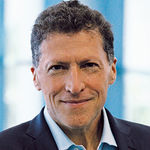
Arnie Weissmann
A recent Gallup poll measuring trust in 11 "core" professions -- nurses, pharmacists, medical doctors, police officers, clergy, bankers, lawyers, business executives, car salespeople, advertising practitioners, members of Congress -- has reached a low mark in the 21st century. On average, only 30% of respondents gave a "high" or "very high" rating for the ethics and honesty of people holding those jobs.
That's 8 percentage points down from 2020.
I have listed them above in the order of perceived trustworthiness; nurses, for example, receive a 76% positive rating while members of Congress pull down the average with only an 8% approval.
(You might, incidentally, feel the urge to question my numbers; news reporters, while not among the "core" professions, rank a net negative. Only 17% gave a "high" or "very high" rating for journalists; television reporters, specifically, fared even worse, at 14%.)
But what about travel advisors and other industry professionals? They're not listed, though there's some overlap with business executives (12% approval) and advertising practitioners (8% approval).
The question is not academic. Advisors face two challenges: First, they have no credentials that are widely recognized by consumers who may be trying to identify true travel-planning experts from those who purchased credentials from a card mill. And second, AI can scrape the language on websites of true experts and create a booking site that can be quite convincing. (Doubting AI's ability to appeal? A recent study showed an AI-enhanced scam message can raise the click-through rate from 12% to an astonishing 54%.)
At a sold-out meeting of the ASTA New York chapter earlier this month, I interviewed ASTA CEO Zane Kerby onstage about how the organization is helping members face these dual challenges.
Kerby is hopeful that Congress will put guardrails around AI to prevent it from mimicking the language of travel experts. "The average ASTA travel advisor has been to 73 countries and adds one or two each year," he said. "They are unbelievably knowledgeable, and to be able to steal that knowledge and promote recommendations dispensed by a chatbot is unreasonable, unethical and should be illegal."
In December, ASTA launched VeriVacation.com, which links consumers to advisors who demonstrate a combination of experience, minimum sales figures and completed regulatory and ethics coursework and who have signed an ethics pledge. Kerby said he hopes the project will engender trust and even empathy between consumers and advisors ("I can't get a hug from a chatbot," he said).
To put teeth behind the program, there is a dispute-adjudication process. "The worst calls I get is when someone says, 'Our fifth wedding anniversary was ruined because a travel advisor took our money and ran off with it,'" Kerby said. "I pray they're not an ASTA member, and most of the time they're not, but they're giving the profession a black eye."
If the advisor in question is a member, the consumer must be satisfied at the end of the adjudication process. Otherwise? "Unfortunately," he said, "the board expelled two members in December."
I asked whether ASTA had considered partnering with the Travel Institute to have their Certified Travel Counselor designation merge with VeriVacation to provide credentialed assurance to consumers, just as a CPA designation verifies certified public accountants.
"We've looked at partnering with them several different times, but unfortunately it didn't come together the way we would have hoped," Kerby replied.
How about state or national licensing?
"A national licensure regime has been the subject of every [ASTA] board meeting for the last 12 years," he said. "It's an extremely long and expensive process. And once it's out there, it takes on a life of its own. You don't have control over it."
Has he contacted some of the agency groups whose standards are so low that they can have an impact on the reputation of advisors in general?
The answer was no. "We're working with individual behavior," Kerby said. "Everyone has decisions to make. We're trying to lift the entire profession with strict standards. We can't police everyone, but we're going to make sure that people know who they can trust."
The dual trials that the organization faces -- AI challenges and getting the word out about verified travel advisors -- are significant.
One hopes for many reasons that Congress can put legal fences around AI, though enforcement of anything over the web is clearly problematic.
The challenge of raising awareness about advisor verification on a limited budget is going to be uphill but winnable over time. As a start, ASTA is filming a Super Bowl-style ad in New Orleans to try to get the point across.
Personally, I wish ASTA had been able to come to an agreement to combine forces with the Travel Institute on verification/certification. It's not ideal to have overlapping professionalism programs. The Travel Institute's CTC designation has some history behind it and could raise the recognition and trust factor for all verified ASTA agents who put those initials after their name.